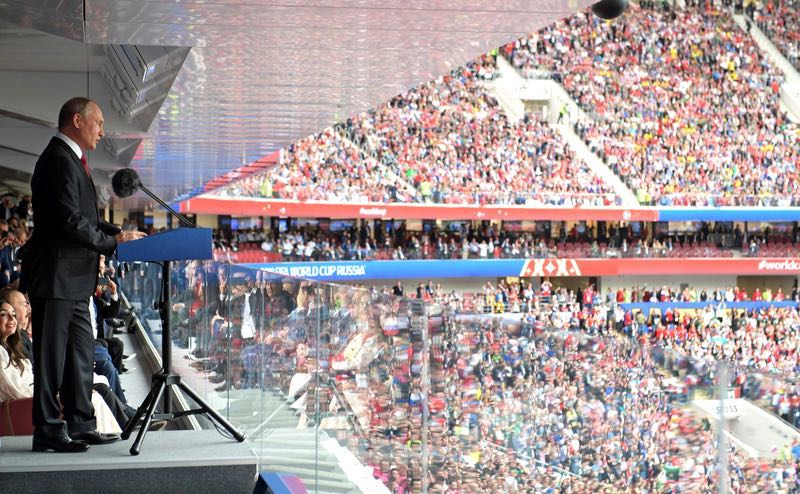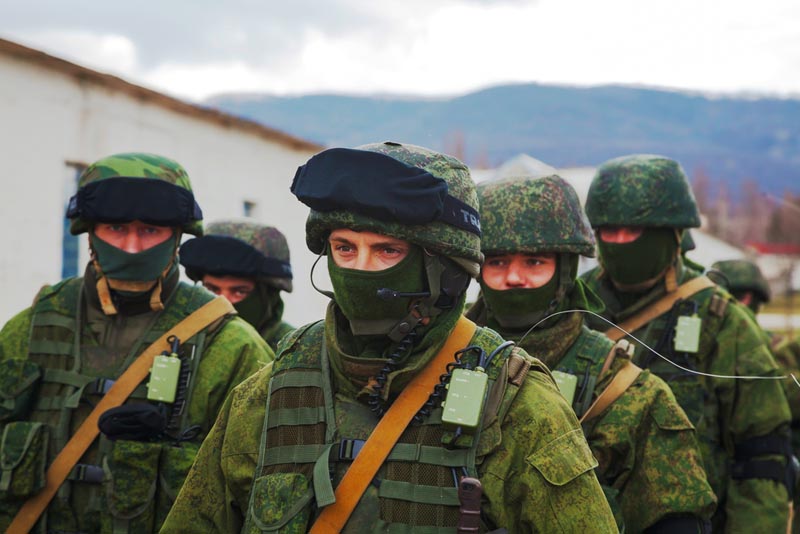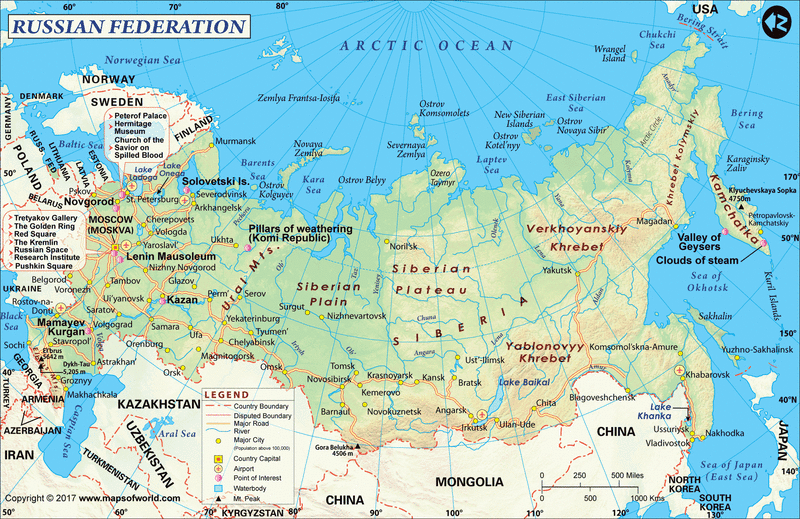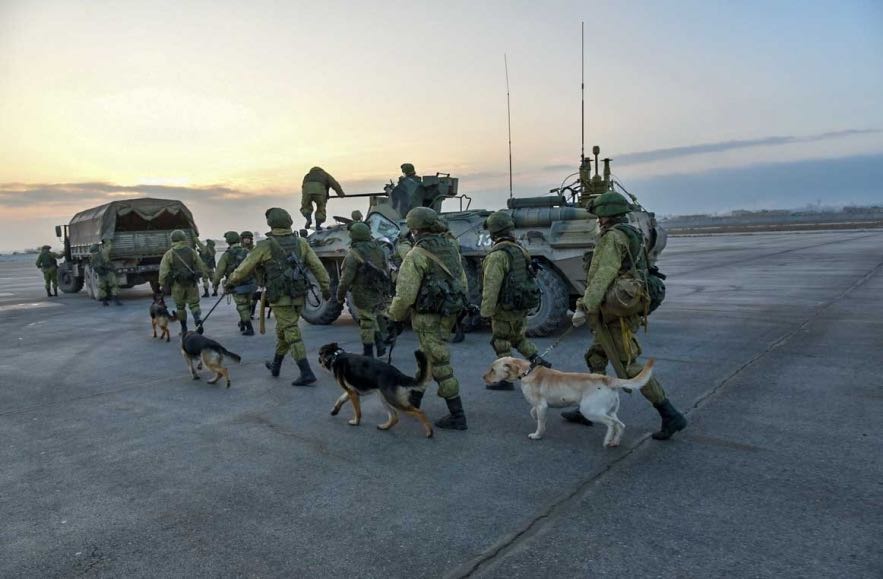In a speech at Clingendael in The Hague Dmitri Trenin, director of Carnegie Moscow, argued that the West is to blame for the alienation of Russia. As it refused to accept the US conditions for a unilateral world order it had to be punished, says Trenin. The German military expert Hannes Adomeit disagrees. There are internal reasons for the unfortunate turn of events in Russia, he argues.
 Putin at opening ceremony of World Cup 2018 in Moscow's Luzhniki stadion on June 14 (picture Kremlin.ru)
Putin at opening ceremony of World Cup 2018 in Moscow's Luzhniki stadion on June 14 (picture Kremlin.ru)
There are few Russian academic specialists these days who dare swim against the Kremlin-ordained national-patriotic, anti-Western current. Dmitri Trenin, as his Clingendael speech and two articles for the Carnegie Endowment and its Moscow Center (here and here) show, is no exception. This becomes painfully evident in the introduction to his speech. He refers to Francis Fukuyama’s assertion of the ‘end of history’, that is, his idea that ‘we may be witnessing not just the end of the Cold War, or the passing of a particular period of post-war history, but the end of history as such: that is, the end point of mankind's ideological evolution and the universalisation of Western liberal democracy as the final form of human government’.
Trenin thinks that the EU member states have basically ‘left history behind’ but that in the relations between Russia and the West ‘the end of history has not come and will not come in the foreseeable future’.
The West to blame
Who is to blame for this state of affairs? Russia may have its own share of mistakes, he says, but ‘frankly, I blame the West as the stronger party’. And what are the most important factors responsible for the triumph of liberal democracy in EU Europe and its failure in Russia? He mentions two, one that he calls psychological, the other geopolitical. On close scrutiny, it turns out, however, that both are geopolitical. Both reveal what could be called the ‘birth defect’ or ‘original sin’ of post-Soviet Russia, that is, the central focus of the Kremlin’s perceptions and policies on the United States. Russia, he argues, ‘refused to buy the entry-ticket to join the West’, printed on which was ‘acceptance of the United States’ leadership’ (later in the speech, harking back to Soviet stereotypes, he used the term US ‘tutelage’), and it wanted to be treated as a ‘serious co-equal’ to the United States.
That’s where the crux of the matter lies and where, indeed, psychological factors are relevant. The mainstays of the Soviet ancien régime, first and foremost the siloviki − members of the security services and the military, including from the former KGB (now FSB and SVR); military intelligence GRU; the interior ministry MVD and its special forces OMON; federal drug control; the officers of the plethora of armed formations including the forces of the defence and interior ministries – and the managers and employees of the far-flung military-industrial complex, never reconciled themselves to the dissolution of the Soviet empire. They thought, like Putin, that ‘Russia is just another name for the Soviet Union’ and that the USSR’s collapse was a major ‘geopolitical catastrophe’.
It is not that they wanted or want to restore the communist ideological components of the Soviet Union but certainly to reconstitute Russia as a Great Power (velikaya derzhava), in essence, to restore it as a superpower on a par with the United States. Like in the Soviet era, however, power fatefully was and is being understood in terms of strategic nuclear assets; raw materials, notably oil and gas; the country’s vast geographical extent, covering eleven times zones; and its status as a permanent member of the UN Security Council.
Reminiscent of Weimar trauma
The psychological aspect is uncannily reminiscent as being a central factor in the demise of the Weimar Republic. Nationalist and chauvinist opponents of liberal democracy, with the Nazis as their spearhead, too, failed to reconcile themselves with the defeat of Germany in World War I. They disseminated the Dolchstoßlegende, the myth that German troops had remained undefeated in war but had been ‘stabbed in the back’ at the home front by social democrats, socialists and communists. That falsification of history resembles the arguments by Russian nationalists and unreconstructed communists that the Soviet system was stable and strong but that it was brought down by a conspiracy of traitors like president Mikhail Gorbachev, adviser Aleksandr Yakovlev, Russian foreign minister Andrey Kozyrev, Russian premier Yegor Gaidar and others.
There is a second major element accounting for the defeat of liberal democracy in the Weimar Republic and in post-Soviet Russia. This is the vicious portrayal of a vast external conspiracy, the claim that the outside world is fundamentally hostile to the country and wants to ‘bring it to its knees’, ‘tear it apart’ or, as Putin charged on television after the September 2004 terrorist attack in Beslan in reference to the North Caucasus, to ‘tear a juicy piece of flesh’ from Russia.
 Russia's 'little green men' during the annexation of Crimea
Russia's 'little green men' during the annexation of Crimea
The third psychological element with disastrous international consequences and one of the major factors for the break-up of Czechoslovakia in 1938 and the attack on Poland one year later was the utilization of the minority issue, the claim that the German diaspora in neighbouring countries was subjected to massive violations of human rights and that Germany not only had the right but also the sacred duty to ‘protect’ its compatriots abroad. That assertion, too, has extensively been used for the legitimation of Putin’s imperial pretensions on post-Soviet space, including for the war in Georgia in 2008, and the annexation of the Crimea, the military intervention in eastern Ukraine and the establishment of and support to the separatist ‘people’s republics’ in Luhansk and Donetsk in 2014.
Russia as 'Europe plus'
Trenin claims that, in a way, the ‘Crimea crisis was predictable’ – a strange assertion since, as with the collapse of the Soviet Union, no one, perhaps with the exception of some mavericks, predicted it. What must appear as absurd, however, is making the United States' failure to treat Russia at eye-level responsible for the annexation of the peninsula. That interpretation is part of a larger analytical error: Trenin like other Putin apologists attributes Russia’s turn away from liberal democracy internally and its malign, agressive foreign policy to external factors.
The basis on which this narrative rests is NATO’s eastward extension. In fairness to Trenin, he did not support that narrative in his speech or in the two articles referred to above. The Russian power elite, however, has used it as one of the most important justifications for its domestic and foreign policies. In doing so, it has painted NATO as a threat to Russian security interests and endowed it with a moral dimension, that is, with the myth that Western leaders made firm ‘commitments’ and gave the Soviet Union ‘guarantees’ that the western alliance would not enlarge east of the GDR.
But who, actually, reneged on solemn commitments? In accordance with Gorbachev’s New Political Thinking, the Soviet Union signed on to the 1990 Charter of Paris. Based on its principles, foreign minister Kozyrev promised to turn Russia into a liberal democracy, a law-based state with an active civil society, a normal European country, shedding its imperial pretensions and becoming a good neighbour of post-Soviet countries, including the Baltic States and Ukraine.
As Trenin acknowledges, ‘right up to Ukraine, the idea was that Russia would progressively become more like Europe, would become part of, let's say, Europe plus’. Indeed. But it was not because of the existence of an external threat that Russia reneged on promises and treaty commitments but because of internal dynamics, that is, the progressive reassertion of the power of the siloviki and their artificial portrayal of threats from the West. Their purpose was clearly evident: to justify the retention of a million-strong army and hundreds of thousands of officers and men in other armed formations, the reassertion of the power and influence of the secret services, the maintenance of the vast military-industrial complex and authoritarianism domestically and the turn away from the European path of development in foreign policy.
To that extent, it is difficult to agree with Trenin’s assertion that Russia’s conflict ‘is not with the West, it’s with the USA’. The conflict is also with Europe, not least because of the fact that Russia is trying its utmost to end the end of history in Europe. It is attempting to do so, as he admits, by ‘hybrid warfare’, including, as he fails to admit, a vicious anti-Western disinformation campaign and destabilization efforts together with like-minded anti-democratic and anti-liberal right-wing forces in Europe.
Axis shifted to Asia
Where one can agree with Trenin and other Putin apologists is that the outlook for Russia to become more like Europe is ‘bleak’ and will not be ‘revisited’, and that it is entirely unclear what could be the ‘platform for a renewed Russian-European relationship’. That has much to do with what the fact that, according to Trenin, in the ‘last five years, Russia’s geopolitical axis has shifted’ to Asia. Russia is not just revising the legacy of Gorbachev and Yeltsin. It is ‘revising the legacy of Peter the Great’. It is ‘rebalancing itself’. Its heart and mind is ‘no longer with Europe from Lisbon to Vladivostok’.

That view is shared by other Russian ‘post-West’ and ‘post-Europe’ theoreticians. These include Vladislav Surkov, an important Putin aide who served as his top domestic-policy strategist for many years and currently works as the presidential adviser on Ukraine. In the April issue of Russia in Global Affairs magazine he wrote that ‘Russia's epic journey toward the West’ is over, marking an end to its ‘repeated fruitless attempts to become a part of Western civilization’ over four centuries. Rather than looking toward the West, the country was increasingly turning inward as well as eastward. The split with the West over Ukraine in 2014 marked the beginning of a new era in which Russia will face ‘100 years (200? 300?) of geopolitical solitude’.
‘Solitude does not mean isolation,’ Surkov explains, and Trenin agrees: ‘Russia will sit in the middle of the continent of Eurasia. It will include your [European] part of the world, China, the Middle East. I imagine Russia sitting in a swivel chair, turning to partners, counterparts, adversaries, wherever they might emerge. [...] Europe will be seen as [only] one of several important neighbourhoods alongside China and East Asia, Central- and South Asia and the Arctic. In this new world Russia hopefully will be able to build new neighbourly relationships.’
Hope dies last
As the saying goes, ‘Hope dies last’. When and how will this brave new Russian world of good neighbourly relations come about? In ‘100, 200 or 300’ years? It is to be hoped that it will not take that long. Yet as Trenin, as noted, acknowledges, the outlook is ‘bleak’. He does not tell us why but it is safe to assume that it has a lot to do with the architecture of the Putin System, a system built on lies, deceit, corruption and denial of responsibility for malign and criminal behaviour at home and abroad. If one were to believe the Kremlin, Russian government officials or officers
- never interfered in the US presidential elections, the national elections of European countries, including in France and Germany, and the referenda in Britain on Brexit and in Catalonia for independence;
- did not did organize an extensive and elaborate system of doping, the authorities lashing out instead at those who helped uncover the scandal, including former director of Russia's national anti-doping laboratory Grigory Rodchenkov, Russian athlete Yuliya Stepanova and German journalist Hajo Seppelt;
- did not engage in any wrong-doing in the case of Sergei Magnitsky, a lawyer for the British Hermitage investment firm, who uncovered massive tax fraud by Russian officials and who died or was murdered in Moscow’s Butyrskaya prison, Russian courts finding both Magnitsky (posthumously) and his former employer Earl Browder (in absentia) guilty of tax evasion and fraud, the latter receiving a sentence of nine years in jail;
- had nothing to do with the murders of Litvinenko, Skripal or any other of the fourteen suspicious deaths under scrutiny in Britain, with the chief suspect in the Litvinenko case, Andrei Lugovoy, enjoying freedom as a member of parliament and being rewarded by Putin with a medal ‘for services to the fatherland’;
- did not use cluster bombs in Syria, including the RBK-500 ZAB 2.5SM, which was shown by RT under a SU-34 fighter-bomber at the Hmeimim air base, inflict large-scale destruction on civilian areas in Aleppo and East Ghouta, and does not hold the Assad regime responsible for the use of poison gas in East Ghouta, Idlib province and other Syrian locations;
 Russian military in Syrian Aleppo (picture Russian ministry of Defense)
Russian military in Syrian Aleppo (picture Russian ministry of Defense)
Concerning Russia’s neighbourhood, notably Ukraine, Russian officials claim that neither Russia nor the separatists had anything to do with the destruction of the passenger aircraft of flight MH17 and that Russia has no regular troops in the Donbas; never bombarded Ukrainian territory across the border; is not delivering weapons and military equipment or ammunition to the separatists; has no role in the recruitment of mercenaries or the planning and conduct of military operations; is not paying for the troops fighting under the ‘LNR’ and ‘DNR’ flags; and is not providing grants and financial aid to the separatist ‘republics’ of Luhansk and Donetsk.
They also deny repeated violations of borders and kidnappings of citizens not only of Ukraine but of other independent states such as, for instance, Estonia. In its southern Caucasian neighborhood, Russia is treating South Ossetia and Abkhazia as independent states and denies responsibility for repeated border adjustments in South Ossetia to the detriment of the central government in Tbilisi.
If, to conclude, one accepts the premise that Russia’s turn towards national-patriotic, anti-Western and, in its neighbourhood, neo-imperialist and ‘spheres of influence’ policies, is not the result of external military threats emanating from the United States and NATO but is primarily internal in origin, change can come only as a result of fundamental policy changes. These would have to be put in place by the Russian power elite. For this to happen, if at all, it would indeed take a very long time.
